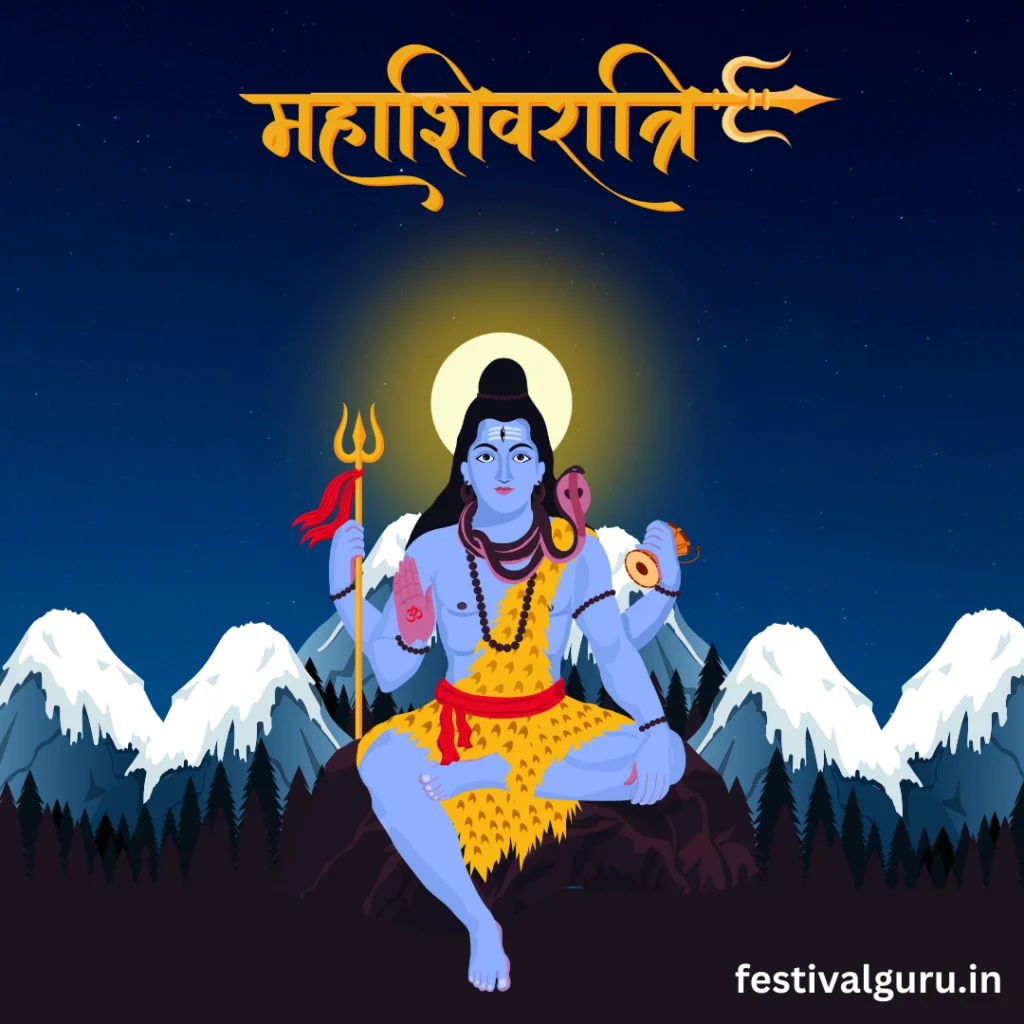
Maha shivratri, also known as the Great Night of Lord Shiva, is one of the most significant festivals celebrated by Hindus around the world. Observed on the 14th day of the dark fortnight in the Hindu lunar month of Phalguna, Mahashivratri in 2024 falls on March 8th. This auspicious occasion holds great spiritual and cultural significance, as devotees honour Lord Shiva, the destroyer and transformer of the universe. Let us explore the story, history, and traditions associated with Mahashivratri in simple terms to understand the essence of this sacred festival.
According to Hindu mythology, Mahashivratri commemorates the marriage of Lord Shiva and Goddess Parvati. Legend has it that Parvati, the daughter of King Himavan, performed rigorous penance to win the heart of Shiva and become his consort. Impressed by her devotion and determination, Shiva agreed to marry her on the moonless night of Mahashivratri. This divine union symbolises the union of the feminine and masculine energies, portraying the inseparable bond between Shiva and Shakti, the cosmic power.
Mahashivratri holds immense significance in Hinduism, both spiritually and culturally. It is believed that on this night, Lord Shiva performed the cosmic dance of creation, preservation, and destruction, known as the Tandava Nritya. Devotees observe Mahashivratri as a day of fasting, prayer, and meditation to seek the blessings of Lord Shiva for spiritual growth, inner peace, and liberation from the cycle of birth and death. It is also believed that worshipping Shiva with sincerity and devotion on Mahashivratri absolves one of past sins and bestows divine grace.
Mahashivratri is celebrated with great fervour and enthusiasm across India and among Hindu communities worldwide. Devotees wake up early in the morning, take a ritual bath, and visit Shiva temples to offer prayers and perform abhishekam, the ceremonial bathing of Shiva Lingam with milk, water, honey, and other sacred substances. Throughout the day, devotees chant the sacred mantra “Om Namah Shivaya” and engage in bhajans, kirtans, and spiritual discourses dedicated to Lord Shiva. Some also observe Jagarane, staying awake all night in devotion and contemplation of Shiva’s divine qualities.
Another significant aspect of Mahashivratri is the consumption of bhang, a preparation made from cannabis, which is believed to be dear to Lord Shiva. Devotees partake in bhang drinks and sweets as a form of offering and to experience a heightened state of consciousness in reverence to Shiva.
Mahashivratri is a festival of profound spiritual significance, reminding us of the eternal presence of Lord Shiva in our lives as the ultimate source of creation, preservation, and transformation. As we celebrate Mahashivratri in 2024, let us immerse ourselves in devotion, introspection, and self-transformation, seeking the divine blessings of Lord Shiva for inner awakening and spiritual enlightenment. May the divine grace of Shiva fill our hearts with peace, love, and compassion, guiding us on the path of righteousness and liberation.
Happy Mahashivratri to All!